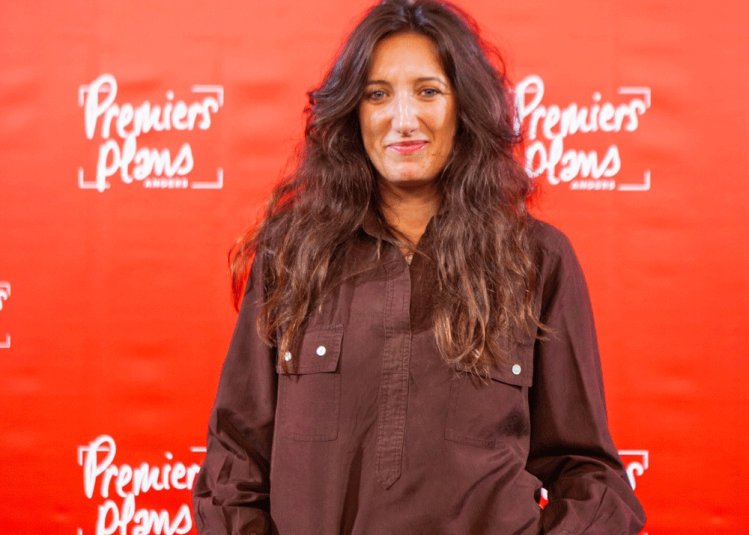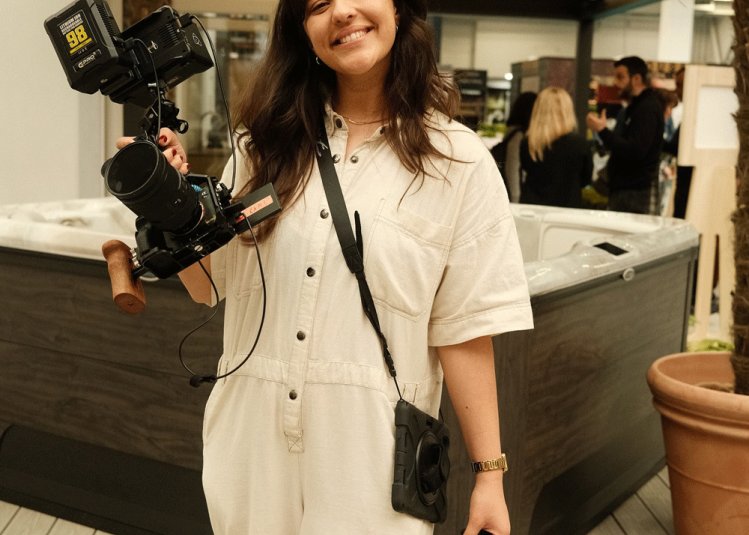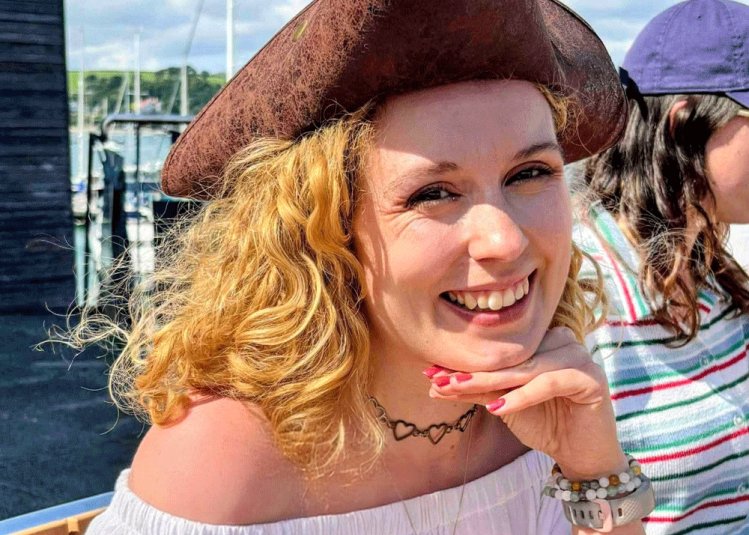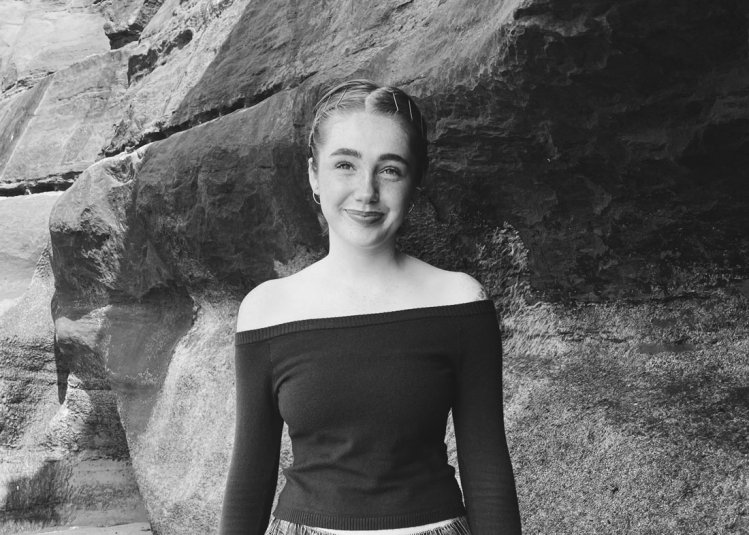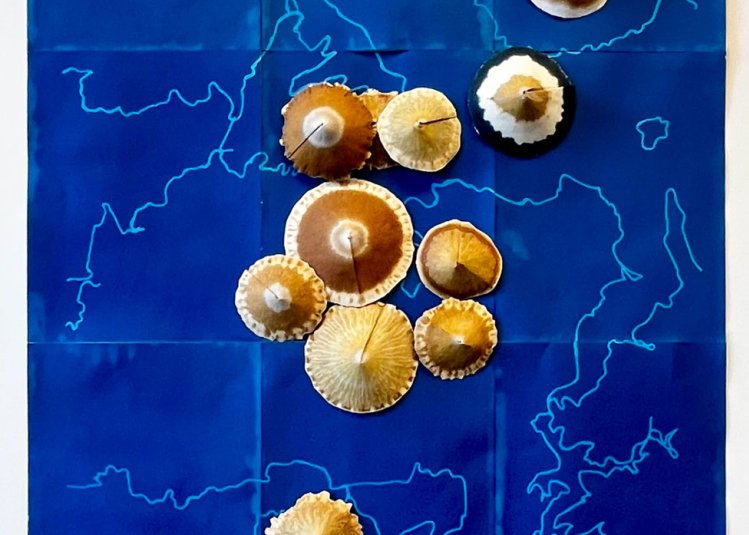Student crewed film another Cinema Lab success story
09 November 2021
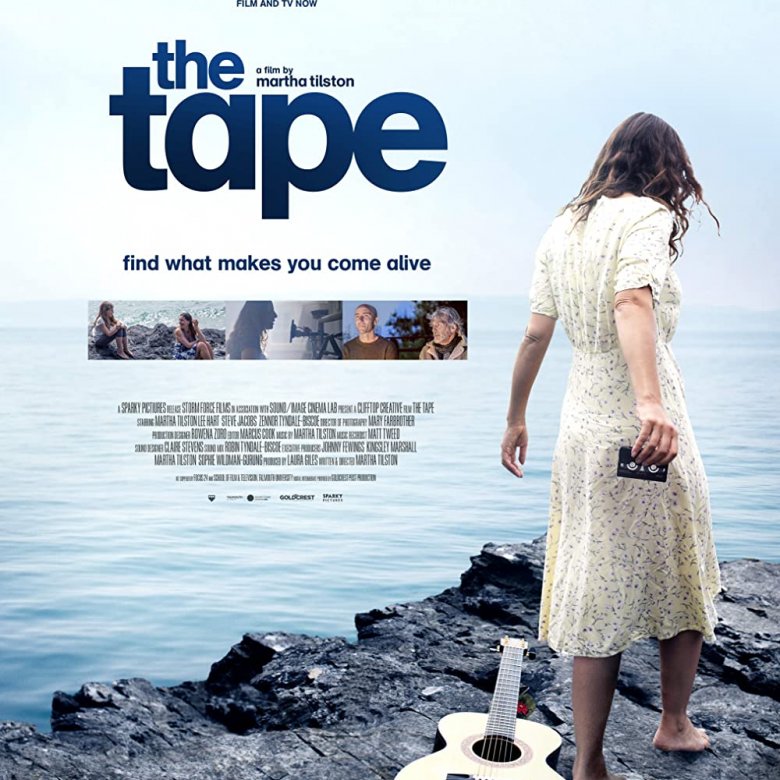
Falmouth’s Sound/Image Cinema Lab gave students the chance to work in key production roles for new film, The Tape.
Students and graduates from Falmouth’s School of Film and Television played an integral part in the creation of The Tape, the latest micro-budget film to be co-produced by Falmouth’s Sound/Image Cinema Lab. The film was written and directed by singer songwriter Martha Tilston, who also plays the lead character, Tally.
Tally is a disillusioned songwriter who finds her creativity renewed at an atmospheric cliff-top house in Cornwall. She decides to record a single analogue copy of her new album. But when corporate lawyer Leo is drawn into her world of music and mythology, the implications ricochet through both their lives.
The soundtrack to the film was recorded by Martha live on set. To the film producer’s knowledge, this is the first time such a feat has been achieved since Robert Altman’s Nashville in 1975.
The Tape has received positive reviews, with The Guardian calling it a “sweet-natured and gently charming Cornish-set romance” that “bobs along like a flip flop on waves of likability”. The film’s music has also widely praised by critics.
The Sound/Image Cinema Lab – a project created by Falmouth’s Professor Neil Fox – puts students and graduates at the heart of film productions. Experienced industry professionals are also on set to help steer productions and enable the development of the students’ skills.
Ella Turner, who studied BA(Hons) Film at Falmouth, worked as a production manager on the film. As Ella told us, her role encompassed “planning everything from kit to crew to accommodation to food to locations to arranging the weather.”
Ella – who has also worked on Mark Jenkin’s Enys Men and is now working full time on Denzil Monk’s Bosena – described her time on the five-week shoot as “some of the best experiences I’ve had” despite the challenging nature of her role.
“We were in some crazy locations and even though I was getting about five hours sleep, I was running on adrenaline I think the whole time. We did have a bit of a panic the week before the shoot, when one of the crew coming from London could no longer bring the kit with them, so Jonny Dry (the first assistant director) and I had to drive up in a van to collect the kit and come all the way back the same day - that was a fun start!”
Marcus Cook, who studied MA Film and Television, worked as an editor on the project. Reflecting on the challenges he faced in his role, Marcus explains that “the film was a low budget production, which meant that we couldn't do any re-shoots. There were times that I would’ve liked a bit more coverage, or establishing shots of locations, or some different angles to cut away to, but it just couldn't happen.
“That meant that we had to come up with creative solutions to solve those problems, and actually that's one of my favourite things about editing. It makes you think outside the box and maybe you come up with a different meaning or use for a shot that wasn't envisioned in the script or during shooting.”
And Marcus’ efforts were well rewarded on the film’s opening night. “It was so gratifying to feel the atmosphere in the room flowing with the film and hear people reacting in the way we wanted them to”, says Marcus. “That's when I remember thinking that we really had something, and when I first realised that I'd played a part in making an actual film that people might see.
“That's what I'm most proud of, that we actually made a film and it's out there in the world for people to watch. It's kind of mad, really.”
